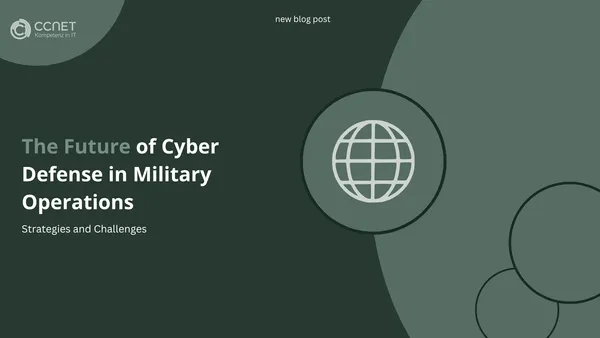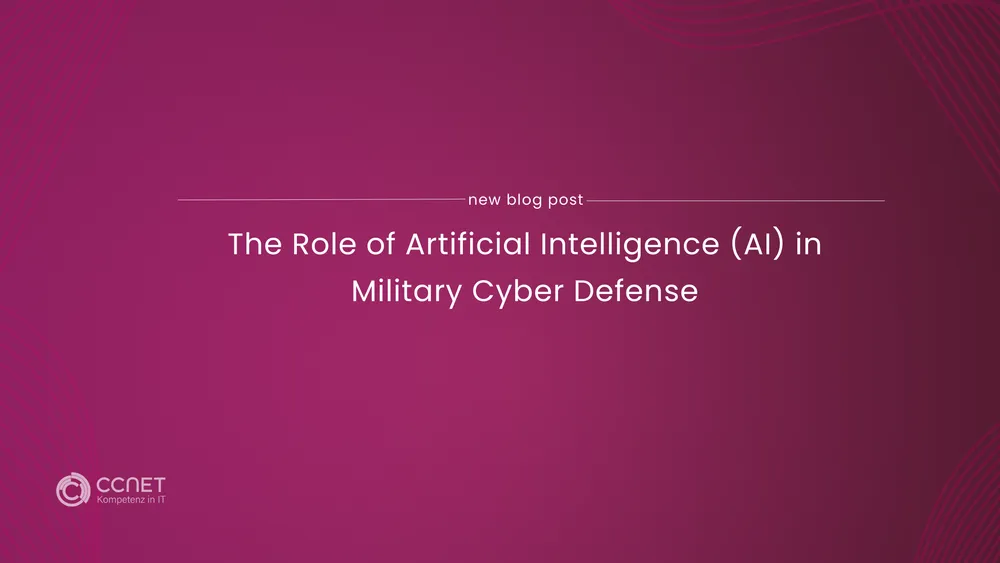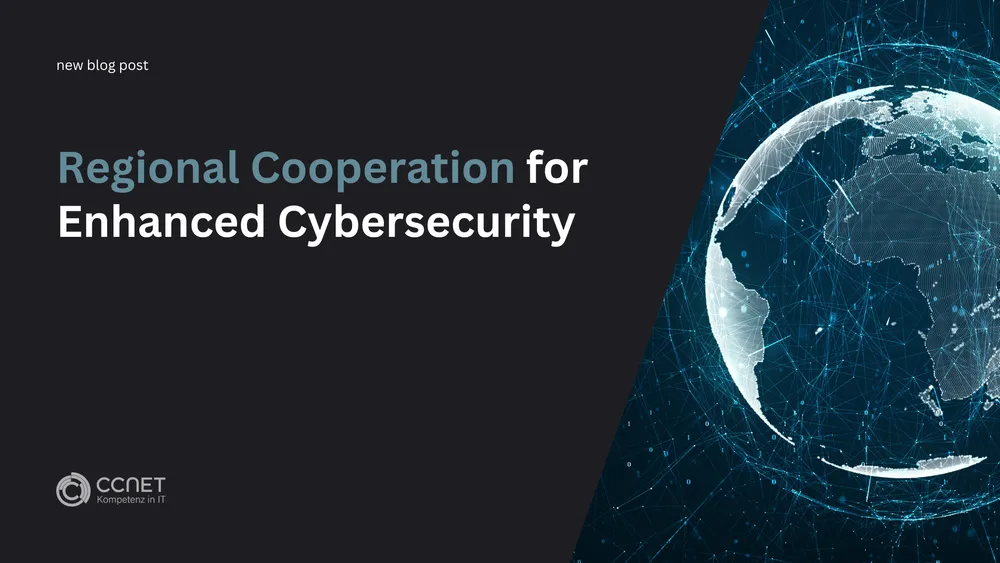
CCNet
Feb 21, 2025 • 3 min read

The Future of Cyber Defense in Military Operations: Strategies and Challenges
The rapid development of technology and the increasing interconnectivity of information systems have made cyberspace one of the central domains of modern warfare. Military operations today are heavily reliant on digital infrastructures, which brings both new opportunities and significant risks. The future of cyber defense will therefore be crucial for the success of military operations. In this blog post, we take a look at the future challenges and strategies necessary to succeed in an increasingly digitized conflict environment.
The Evolving Threat Landscape
The threat landscape in cyberspace is dynamic and constantly evolving. Cyberattacks are becoming more complex, sophisticated, and targeted. While many attacks in the past were opportunistic, there is now a noticeable increase in targeted assaults, often carried out by state-sponsored actors or well-organized cybercriminals. These attacks aim to destabilize critical military infrastructures, disrupt communication networks, or steal strategic information.
A growing risk is the use of artificial intelligence (AI) and machine learning by attackers. These technologies enable adversaries to conduct attacks autonomously and with greater precision, making it significantly more difficult to detect and defend against such threats. Military organizations will therefore need to be able to anticipate and counter these advanced attacks, including by leveraging AI-powered defense systems themselves.
The increasing interconnectivity and digitization of military systems also introduce the risk of zero-day exploits—vulnerabilities in software or hardware that are not yet publicly known and therefore difficult to defend against. Such attacks can have devastating impacts on military operations, especially if exploited at critical moments.
Future Strategies for Cyber Defense
In light of these challenges, the future of cyber defense will largely depend on how well military organizations can adapt and evolve their strategies. Some of the key strategies that will gain importance in the coming years include:
-
Proactive Cyber Defense: Instead of relying solely on reactive measures, there will be a stronger focus on proactive defense strategies. This means recognizing and preventing threats before they can cause damage. Threat intelligence will play a key role in identifying potential attacks early on and taking steps to mitigate them.
-
Integration of AI and Automation: AI and machine learning will play an increasingly important role in cyber defense in the future. These technologies can help identify patterns in network activities that signal an impending attack, and can automatically initiate countermeasures. AI-powered systems can also respond to attacks in real-time, greatly reducing response times and improving the overall efficiency of defense mechanisms.
-
Resilience and Redundancy: Given the inevitability of cyberattacks, resilience—the ability to recover quickly from attacks—will become a crucial element of defense strategies. Military organizations will need to ensure that their systems are resilient enough to continue functioning even in the event of a successful attack. Redundant systems and backup infrastructures will help minimize failures and ensure operational continuity.
-
Zero-Trust Architecture: Implementing a zero-trust architecture, where no user or system within a network is inherently trusted, will play a critical role in the future. This strategy minimizes the risk of attackers gaining access to larger parts of a network by compromising a single point. Instead, all users and devices will be required to authenticate and verify continuously, greatly improving the overall security posture.
-
Multinational Cooperation: As cyber threats are often transnational, international cooperation will become increasingly vital. Military organizations will need to collaborate more closely to share threat intelligence, develop joint defense strategies, and support each other during crises. Such cooperation will be essential to countering global cyber threats effectively.
Challenges in Future Cyber Defense
Despite the advanced strategies being developed, significant challenges remain in cyber defense. One of the largest hurdles is the shortage of qualified personnel. The demand for cyber experts far exceeds the supply, making it difficult to recruit and retain skilled professionals.
Another issue is the speed at which technologies and threats are evolving. Military organizations must constantly adapt their capabilities and strategies to keep pace. This requires significant investment in research and development, as well as continuous training for personnel.
Finally, the question of ethical and legal frameworks remains a challenge. With the increasing automation of cyber operations through AI, new ethical dilemmas arise, particularly concerning decision-making in conflict situations. It will be crucial to develop clear guidelines to ensure these technologies are used responsibly.
Conclusion
The future of cyber defense in military operations will be shaped by the ongoing development of strategies and technologies. Military organizations must be proactive and innovative to meet the growing challenges in cyberspace. By integrating AI, strengthening resilience, and fostering multinational cooperation, they can enhance their defense capabilities and prepare for the demands of future warfare.


